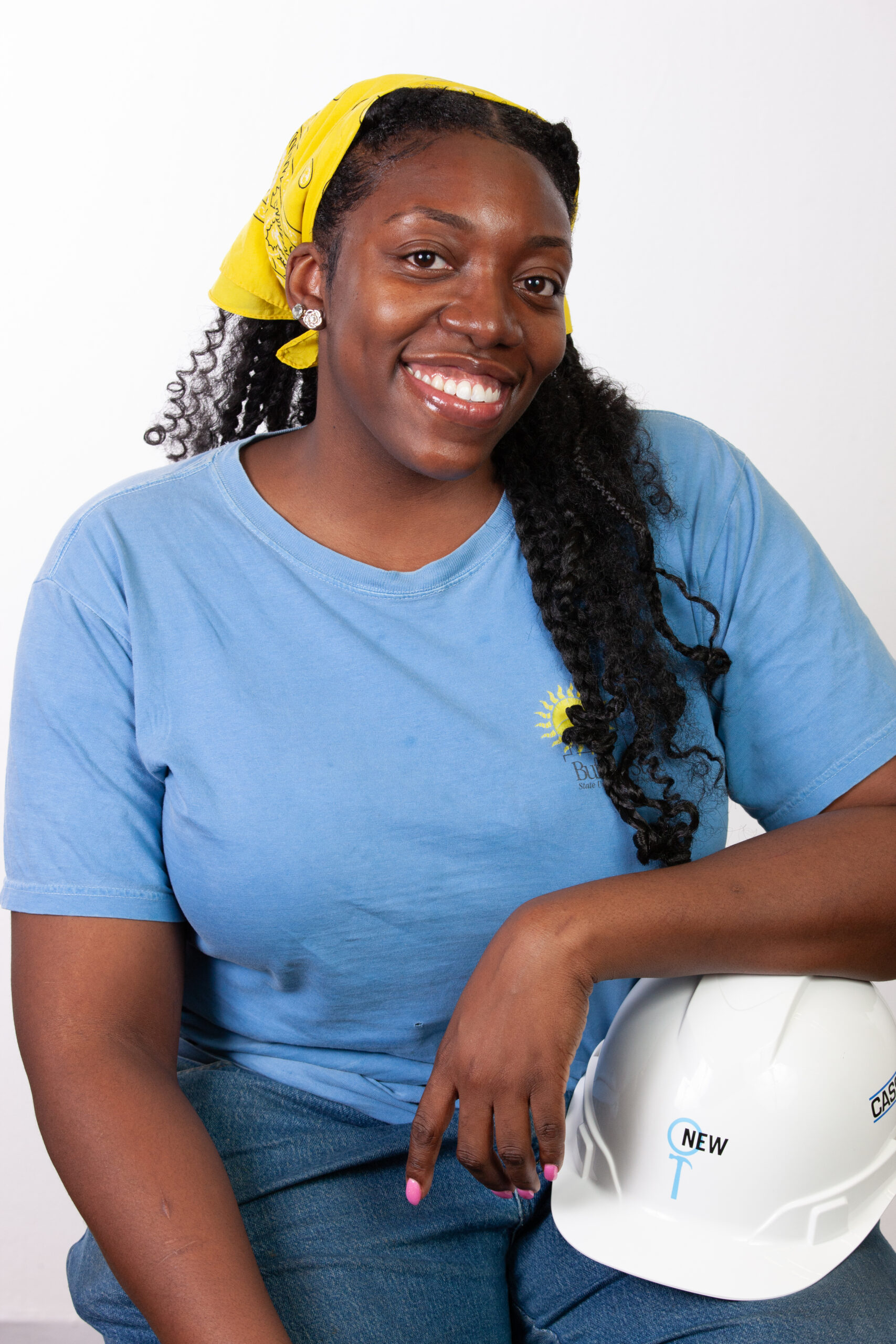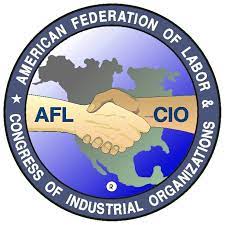You often hear that workers find themselves in the construction trades because of a love of making things or working with one’s hands. For Racquel Hazlewood, it was her love of mathematics that ultimately led her to electrical work.
“I always had a love for math. Like that I think was like the thing that drove me there,” she said.
Hazelwood, an electrician with the International Brotherhood of Electrical Workers Local Three, came into the trades through Nontraditional Employment for Women (NEW), the nonprofit that centered on supporting women in careers in the construction, utility, and maintenance trades. Now NEW has chosen to honor her at its 2024 Tradeswomen Honoree.
Her path into the trades gave her a shot in a field that she had been struggling to break into. But NEW was crucial to her transition, she said. Coming through a network of women who were also charting a course into a male-dominated industry has played a big role in her success in her near-completed apprenticeship program.
Hazelwood found Local Three and NEW after she had struggled to find a job related to bachelor’s degree in electrical engineering. Even though people were telling her that there were jobs for women in STEM, the only opportunities she could find in Buffalo where she went to school were in customer service. It was her father, a member of the carpenters union, who suggested that she look into IBEW after she moved back to New York City.
She discovered NEW as she was looking into apprenticeships, and before she knew it, but not until after a “rapid-fire” interview, she found herself in a pre-apprentice class. Five months later she had gotten into an apprenticeship which her background in engineering gave her a leg-up on. “I definitely was helping my fellow classmates. I was like the unofficial tutor,” she said.
Though Local Three has a reputation as having one of the more diverse gender balances in the New York City construction trades, Hazelwood said that it’s still the case that “most of the time you’ll be the only woman on the job or maybe one other.”
NEW trains its graduates on a range of construction trades cultural situations ranging from expectations like the importance of being punctual to more fraught topics like how to respond to situations where male coworkers treat their female colleagues differently. One example that happens at many job sites, for example, is when male workers unpromptedly ask their female coworkers why they wanted to enter the trades, something that they probably take for granted with their male counterparts.
“Within the first week, I had like two different people ask me that,” Hazelwood said.
But for her, perhaps the most important part of the program was the connection to other women who work in the trade. Within the first two years of Hazelwood’s apprenticeship, she was laid off from several jobs several times. She messaged a chat group of women in her NEW cohort and found the strength to persevere after many shared that they had been through the same experience.
“Just having that support system of people who know exactly what you’re going through and ‘I’ve been there’ and can give you guidance and tell you, ‘Don’t give up. Keep pushing.’ —that was big for me,” she said.
It also taught her how to navigate certain workplace standards that make things more difficult for women. On work sites, bathrooms for women are often inconveniently located or non-existent at first. Hazelwood said that she’s had to be very proactive with foremen about making sure that she’s accommodated in a way that doesn’t involve her having to traverse dozens of floors and take away from her productivity.
“That’s where it’s a double-edged sword where you wanna speak up, but then you’re fearful, like is this gonna put me in a bad spot? At the end of the day, it’s not only for you, but you have to remember the other women coming behind you on that site,” she said.
She thinks that advocacy is a key part of why NEW chose her as Tradeswoman of the Year, which she said is a huge honor. “We just continue the fight together to continue to make progress,” she said.






